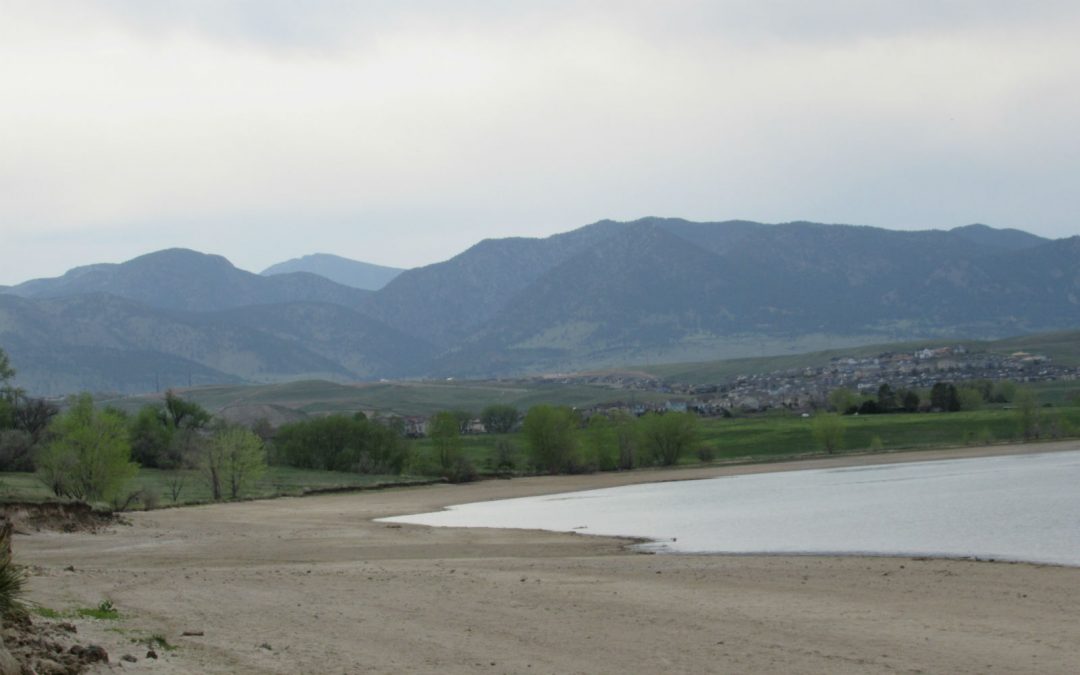This four-part series contrasts the processes behind the Colorado Water Plan with four other recent Western Water Plans: California, Texas, Montana and Oregon.
The future holds infinite numerous possibilities and, with it, the imperfect understanding of future natural hazard impacts and society’s adaptations to those changes. An increasingly arid climate and rapid population growth in the Western U.S. underlies and exacerbates challenges in water policy and future planning.
Why is uncertainty important to consider in planning?
Considering uncertainty in planning allows for the development of stronger (e.g. more “resilient”) strategies that can accommodate the inevitability of future change. From varying perspectives, the term “uncertainty” could imply doubt, a lack of sufficient data to draw precise conclusions, or a lack of understanding. In the specific context of planning, uncertainty is defined as an unknown future full of varying future conditions. The unknown is a hard thing to plan for! But when a multitude of possibilities is accepted by planners as reality, it simply makes sense to prepare for a reasonable range of solutions.
No one holds a crystal ball. Despite sometimes causing decision paralysis, the presence of uncertainty should not prompt inaction. A discussion or quantification of uncertainty can help support evidence-based adaptation and planning. Science, technology and research are used to mitigate and adapt to conditions such as climate change and allow for the opportunity to quantify variables, reduce issues, and communicate data.
Communicating uncertainty
One benefit of communicating uncertainty, is the opportunity to engage with, and potentially learn from, stakeholders’ concerns and fears. Selecting an appropriate vehicle for uncertainty communication and strategically developing content is required to minimize misunderstandings. Data and uncertainty can be communicated through text, charts, maps and graphs.
Policymakers, scientists and public stakeholders may frame uncertainty in water management in different ways. For example, effectively communicating climate data to a stakeholder that accepts climate change and is invested in adaptive practices may look different than effective communication tailored to stakeholders less familiar or receptive to adaptive measures.
Engaging with stakeholders and audiences on uncertainty is an opportunity to change the conversation—uncertainty will always be a part of science, modeling and future planning efforts. If people are frequently reminded of the many possibilities the future holds, they may be able to improve their engagement with and comprehension of planning under uncertainty.
How is it being incorporated into Western water planning?
Stakeholders and the public must be engaged to successfully incorporate uncertainty into water policy. The public can help planners understand how uncertainty should be considered in planning documents and their involvement can help establish expectations around how and why policy may require updates or changes as natural systems shift. Many Western states are beginning to utilize adaptive management into future water planning.
Adaptive Management: an approach to uncertainty
For planning purposes, strategies must be dynamic as conditions change or lessons are learned. The most widespread water management regime is a ‘prediction and control’ regime where the water system’s behavior and response to events may be predicted and optimal control strategies can be subsequently designed. Decisions made from this mechanistic approach tend to be shaped by a regulatory framework that involves technical norms or legal prescriptions. To address the challenge of uncertainty and climate change, there must be a shift from this common method to a more adaptive and flexible approach in water management.
Adaptive management refers to a systematic process for continually improving management practices and policies by learning from the outcomes of implemented management strategies. This form of management has been proven to be effective as it allows for management regimes to experiment by comparing selected practices and policies and then evaluating the alternative hypothesis for the system being managed. Here is an example of Texas utilizing adaptive management in their water planning process:
- The Texas Water Plan 2017 explicitly addresses uncertainty around project implementation (Chapter 8). The plan articulates sources of uncertainty, including permitting timelines and financial processes. Regarding ecological and climate uncertainty, the Texas Water Plan recommends implementing a combination of water management strategies that could provide more water supplies than are required to meet projected needs. The Texas Water Plan encourages an adaptive process and cites the five-year update cycle as a response to changes and uncertainties.
Given the uncertainties of future hydrology and climate, water planning efforts can be strengthened by incorporating risk and uncertainty into water resource management planning. Advancing adaptive practices can occur through learning by doing, stakeholder engagement, and sharing best practices and data. Effectively communicating risk and uncertainty improves the likelihood that adaptive practices will be successfully implemented.
Water agencies can drive innovation in policy with scenario planning. Although scenario planning will reveal unfavorable future scenarios, the ability to prepare for likely futures and to adapt to uncertainty will provide a foundation for better planning. Managing uncertainty is far from a new challenge, however, in these modern times, tools exist to ensure water leaders can help illuminate the best paths forward. See how uncertainty was incorporated into water planning for the Colorado Water Plan on next week’s post!
Read our full Western Water Plans series with posts:
“How does the Colorado Water Plan compare to our neighbors”
“How do Western states incorporate regional engagement into water resource planning”
“Uncertain about uncertainty”
“How do Western states plan for uncertain futures in water policy”
 Bianca Valdez is a graduate student at the University of Colorado Boulder pursuing a Masters in Environmental Policy. Bianca has a passion for water resources and intends to continue to immerse herself in the water policy space. Bianca holds a B.S. in Hydrogeology from the University of Texas at Austin.
Bianca Valdez is a graduate student at the University of Colorado Boulder pursuing a Masters in Environmental Policy. Bianca has a passion for water resources and intends to continue to immerse herself in the water policy space. Bianca holds a B.S. in Hydrogeology from the University of Texas at Austin.


 Print
Print